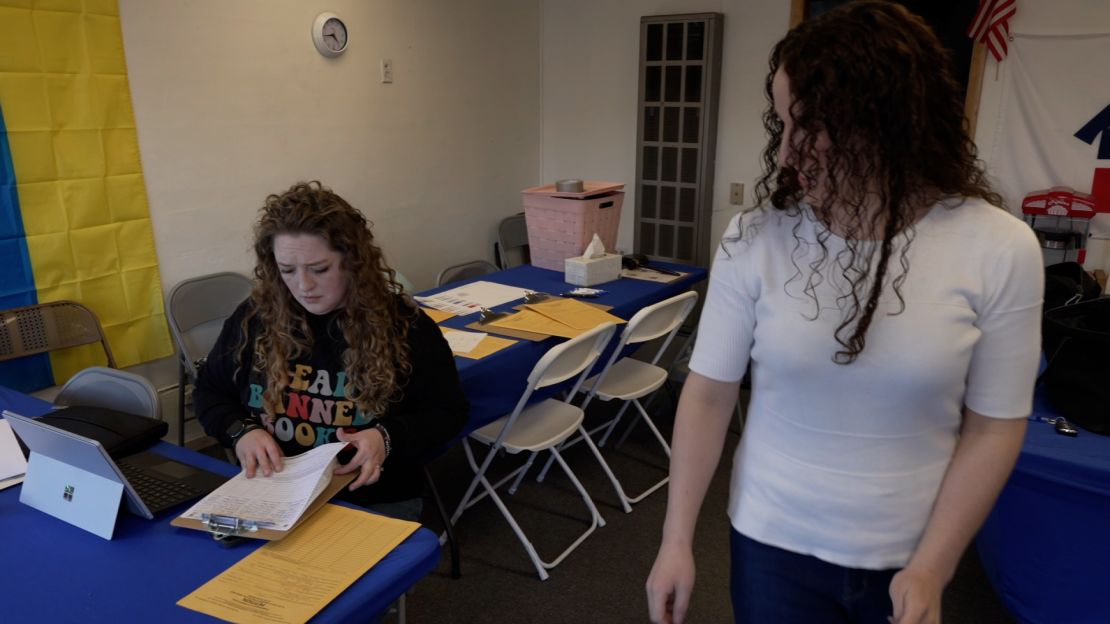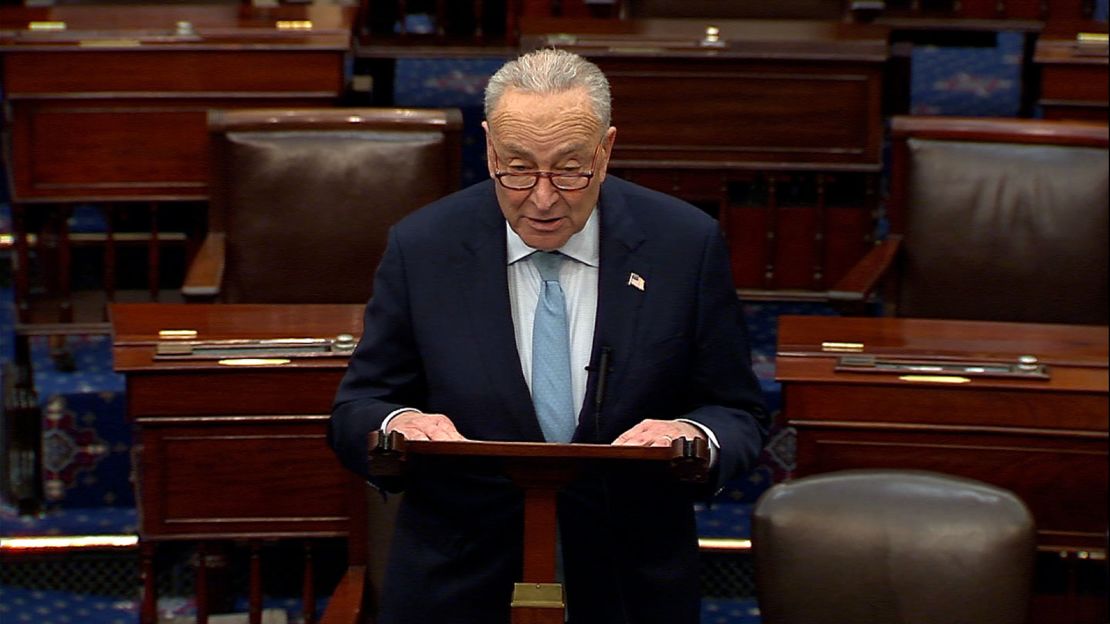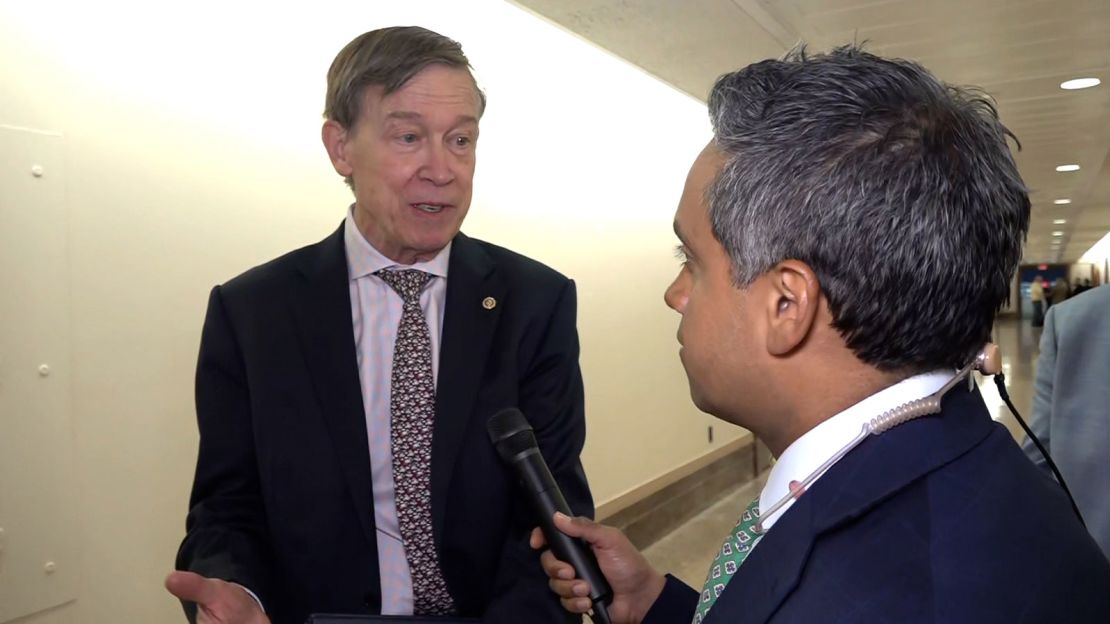UJ
—
Democrats in Washington have found their initial leverage against President Donald Trump, albeit accompanied by a complex dilemma that could exacerbate their perceived ineptitude during his second term.
The pressure surrounds a temporary funding measure for the government that could inadvertently allow Trump’s anti-establishment agenda to proceed, even as Democratic voters urge their leaders to take a stand.
As a pivotal Senate vote approaches, Democratic leaders must navigate a contradictory situation: Is shutting down the government a strategy to ultimately save it? Such a move risks leaving federal agencies paralyzed and employees vulnerable to drastic cuts fueled by Elon Musk’s influence.
The Democrats’ decisions will unfold amid escalating frustration from progressive faction members, whose discontent after the 2024 elections has now morphed into outright despair, particularly as Trump disrupts Washington dynamics in his initial 50 days in office, jeopardizing the 80-year liberal order.
The Democrats faced ridicule for their ineffective protests highlighting their impotence during Trump’s recent address to Congress, where some donned color-coordinated attire and others displayed anti-Trump paddles.
Bobbi Erickson, a Democratic volunteer from Pennsylvania, expresses the need for stronger opposition against Trump. “We are witnessing the Constitution burn. We are seeing our cherished country being systematically dismantled,” Erickson remarked to UJ’s Eva McKend, who observed a palpable impatience among grassroots Democrats during her recent visit to the state.

Back in Washington, party leaders have an opportunity to exhibit resilience.
Historically, Republicans tend to shoulder blame for partial government shutdowns, which may begin at midnight Friday if new spending is not approved by the Senate.
However, Trump and Musk’s shocking strategies aimed at dismantling federal operations have destabilized the typical political landscape, prompting both parties to reevaluate their strategies in the face of potential shutdowns.
The House of Representatives initiated the GOP’s dual approach by passing a bill that would maintain current spending levels until the end of September while reassigning funds to focus on Trump’s agenda, particularly border security. Subsequently, the House adjourned, leaving the Senate to address the fallout.
Democrats are concerned that this stopgap legislation will merely extend Trump and Musk’s efforts to execute large-scale cuts in the federal workforce and potentially eliminate entire departments. Theoretically, they could obstruct it by withholding the eight votes necessary to achieve a filibuster-proof majority in the Senate. The requirement for 60 votes on most bills represents the sole measure Democrats can use to mitigate Trump’s initiatives.
“I will oppose the measure passed by House Republicans as I refuse to support Trump and Musk’s initiatives,” stated Delaware Senator Chris Coons in an interview on “UJ News Central” Wednesday.
If Democrats choose this route, it risks shutting down the government at a moment when Trump is actively undermining it.
Arizona Democrat Senator Mark Kelly indicated to UJ’s Kaitlan Collins on Tuesday that he hadn’t reached a decision on how to vote yet but acknowledged the broader ramifications of a government shutdown. “What will Elon Musk allow to resume operation afterward? That concerns me greatly,” Kelly elaborated. “How many veterans are vulnerable to being let go by Musk and this administration? There are no favorable choices here.”
Senate Democratic Minority Leader Chuck Schumer attempted to extricate Democrats from their political predicament on Wednesday, cautioning that the 60 votes required to pass the funding bill are not currently in place. He proposed a separate one-month extension maintaining existing spending levels, hoping to foster bipartisan negotiations. “We should proceed with that. I truly hope our Republican counterparts will cooperate to avert a government shutdown on Friday,” Schumer remarked on Wednesday.

Nonetheless, there is little expectation that the GOP, reveling in its dominance over Washington, will collaborate with the minority party. This leads to speculation about whether Schumer is merely posturing, anticipating that enough Democrats will ultimately approve the funding to keep the government open, while simultaneously allowing the majority of his party to register a symbolic opposition to Trump.
Republicans are relishing the drama after laying the groundwork for the confrontation.
“Chuck Schumer faces a critical choice. Will he pass the bill to keep the government functioning, or will he bear the blame for its closure?” House Speaker Mike Johnson shared with Fox News on Wednesday. The Louisiana Republican successfully unified his slim majority to endorse the stopgap measure, showcasing Trump’s immense influence. Johnson clearly takes pleasure in casting at Democrats the same lines they have long faced during prior shutdowns.
The next couple of days promise to be arduous for Democrats. “I abhor the House bill,”Senator John Hickenlooper told UJ’s Manu Raju. The Colorado Democrat is inclined to support the measure despite voicing concerns about it enabling Trump to push through significant government cuts that contradict their agendas.

The rationale behind Democrats contemplating a Senate blockade, even at the risk of a government shutdown, primarily revolves around the chance to demonstrate some resistance against a tumultuous start to this presidential term.
Democrats also hope to place pressure on Johnson, compelling him to confront any backlash for prematurely sending his members away. Their goal is to extract some concessions that could temper Trump’s agenda or create divisions within the tenuous GOP House majority that may become crucial in future, more strategic battles.
Senator John Fetterman from Pennsylvania is among the few Democrats endorsing the passage of the stopgap bill, having previously irritated some grassroots members of his party by aligning with certain Trump policies and appointments.
“Shutting down the government will adversely affect millions of Americans and would push us towards a recession or other catastrophic outcomes,” Fetterman warned in an interview with UJ’s Manu Raju on Wednesday. “Consider what you are voting for; to close the government is to inflict serious harm on countless Americans,” Fetterman asserted.

Fetterman’s perspective may appear to many Democrats as a retreat from their call for assertive action from their representatives in Washington. However, it also underscores a harsh reality: the party currently lacks the power to effect meaningful changes, an opportunity that might only manifest in the 2026 midterm elections, when Democrats aspire to regain control of the House and a check on the sitting president.
Nevertheless, the prospect of overturning the GOP’s existing 53-47 advantage in the Senate looks challenging, with only two Republican-held seats, in Maine and North Carolina, appearing likely to be competitive, alongside several incumbent Democrats facing potential vulnerability. The scenario became even more precarious on Wednesday when Senator Jeanne Shaheen of New Hampshire—whose state narrowly leaned Democratic in the 2024 presidential election—declared she would not seek reelection, triggering a competitive contest for her seat.













 Bengali (Bangladesh) ·
Bengali (Bangladesh) ·  English (United States) ·
English (United States) ·